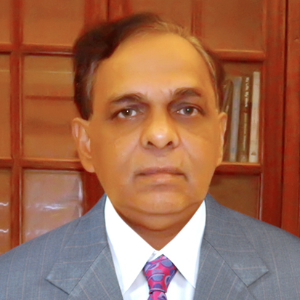Title : Towards C4 rice; Overexpression of C4 genes in Arabidopsis thaliana and Oryza sativa Enhances Photosynthesis, Plant Productivity and Water Use Efficiency
Abstract:
Plants with C4 photosynthesis are not only efficient in carbon assimilation, but they also have an advantage under unusual growth conditions. In C4 photosynthesis, the primary CO2 fixation is catalyzed by phosphoenolpyruvate carboxylase (PEPC). It is shown that overexpression of, both PEP Carboxylase and PEP Carboxykinase in Arabidopsis thaliana to have increased CO2 concentration in the vicinity of Rubisco. resulted in higher electron transport, carbon assimilation, increased biomass coupled with better water use efficiency. Carbonic anhydrase (CA) catalyzes the inter-conversion of CO2 and bicarbonate used by the primary carboxylating enzymes of C3 and C4 plants respectively. Overexpression of cytosolic carbonic anhydrase (b-CA3) of the C4 dicot Flaveria bidentis in C3 Arabidopsis thaliana increased the photosynthetic efficiency of the transgenics. Due to a higher concentration of HCO3- in CA overexpressors, their PEPC activity increased generating more oxaloacetic acid and amino acids. Consequently, their total protein content increased resulting in higher Chl synthesis. The electron transport rate, CO2 assimilation rate, starch content, plant fresh weight and dry weight increased by 10-20% in CA overexpressors. Transgenic plants had lower stomatal conductance, reduced transpiration rate, and higher water use efficiency. Like C4 plants all the transgenics were tolerant to abiotic salt stress. Transgenics had higher electron transport rate, better performance index and reduced generation of reduced generation of reactive oxygen species in the stress environment. These approaches are being replicated in rice (Oryza sativa) to have increased photosynthesis, plant productivity, and grain yield.
Take Away Notes:
• Work presented shall be helpful to researchers working in the field of Plant Biology and Biotechnology. The approach could be replicated in other plants to increase plant productivity and grain yield.

